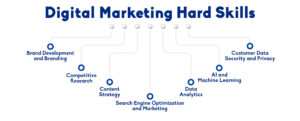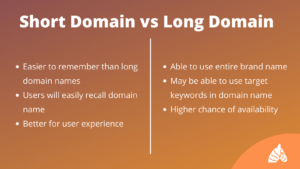Are you ready to dive into the exciting world of digital marketing? If you have a passion for data analysis and a love for all things digital, then becoming a digital marketing analyst might be the perfect career path for you. In this article, we will explore the steps you need to take to become a digital marketing analyst and unlock a world of opportunities in this rapidly growing field. So, let’s get started!
Becoming a digital marketing analyst is an exciting journey that requires a unique set of skills and knowledge. As a digital marketing analyst, you will be responsible for analyzing data, identifying trends, and making strategic recommendations to help businesses optimize their online presence. From analyzing website traffic to tracking social media metrics, your expertise will play a crucial role in driving business growth in the digital age. So, if you’re ready to embark on this thrilling adventure, let’s dive into the world of digital marketing analysis and discover how you can become a digital marketing analyst.
- Start by gaining a strong understanding of digital marketing concepts, such as SEO, social media marketing, and analytics.
- Earn a bachelor’s degree in marketing, business, or a related field.
- Gain practical experience through internships or entry-level positions in digital marketing.
- Develop your analytical skills by learning how to use tools like Google Analytics and data analysis software.
- Continuously stay updated with industry trends and advancements through online courses and workshops.
- Obtain certifications in digital marketing, such as Google Ads or HubSpot certifications, to demonstrate your expertise.
- Build a strong online presence by creating a professional website and showcasing your work through a portfolio.
- Network with professionals in the industry and attend digital marketing conferences to expand your connections.

How to Become a Digital Marketing Analyst?
Digital marketing has become an essential component of any successful business strategy, and companies around the world are constantly seeking skilled professionals to help them navigate the digital landscape. One such role that has gained prominence in recent years is that of a digital marketing analyst. A digital marketing analyst is responsible for analyzing and interpreting data to develop effective marketing strategies, optimize campaigns, and measure their success. If you are interested in pursuing a career as a digital marketing analyst, this article will guide you through the steps to become one.
Step 1: Obtain a Relevant Degree or Certification
The first step towards becoming a digital marketing analyst is to acquire the necessary knowledge and skills. While there is no specific degree required for this role, a background in marketing, business, or a related field is highly beneficial. Many universities and colleges offer degree programs in marketing or digital marketing, which cover topics such as consumer behavior, market research, social media marketing, and data analysis. Additionally, there are various online certifications available that can enhance your credentials and demonstrate your expertise in digital marketing.
Earning a Degree
If you decide to pursue a degree, consider enrolling in a program that offers courses specifically focused on digital marketing and analytics. These courses will provide you with a solid foundation in marketing principles and teach you how to leverage digital tools and techniques to analyze consumer behavior, track campaign performance, and make data-driven decisions.
Obtaining Certifications
In addition to a degree, obtaining certifications in digital marketing and analytics can significantly boost your chances of landing a job as a digital marketing analyst. There are several reputable organizations that offer certifications in various areas of digital marketing, such as Google Analytics, Google Ads, HubSpot, and Adobe Analytics. These certifications not only validate your skills but also demonstrate your commitment to staying updated with the latest industry trends and technologies.
Step 2: Gain Practical Experience
While theoretical knowledge is important, practical experience is equally crucial in the field of digital marketing analysis. Employers often value candidates who have hands-on experience working with digital marketing tools, platforms, and analytics software. To gain practical experience, consider the following:
Internships and Entry-Level Positions
Internships and entry-level positions provide an excellent opportunity to put your knowledge into practice and gain valuable industry experience. Look for opportunities at marketing agencies, digital marketing departments of companies, or start-ups. These positions will allow you to work alongside experienced professionals and learn the ropes of digital marketing analysis.
Freelance Projects and Personal Projects
Another way to gain practical experience is by taking on freelance projects or working on personal projects. Offer your services to small businesses or non-profit organizations that may require assistance with their digital marketing efforts. This will not only give you hands-on experience but also provide you with a portfolio of work to showcase your skills to potential employers.
Step 3: Develop Analytical Skills
As a digital marketing analyst, your primary responsibility is to analyze data and derive actionable insights. Therefore, it is essential to develop strong analytical skills. Here are some ways to enhance your analytical abilities:
Learn Data Analysis Tools
Familiarize yourself with data analysis tools such as Google Analytics, Adobe Analytics, and Excel. These tools offer a wide range of features that enable you to track website traffic, measure campaign performance, and generate reports. By mastering these tools, you can efficiently analyze data and extract meaningful insights.
Stay Updated with Industry Trends
The field of digital marketing is constantly evolving, with new tools, techniques, and trends emerging regularly. Stay updated with the latest industry developments by following influential blogs, attending webinars, and participating in online communities. This will not only broaden your knowledge but also help you stay ahead of the curve in terms of analytical methodologies and best practices.
Step 4: Showcase Your Skills
To stand out in the competitive job market, it is crucial to effectively showcase your skills and expertise as a digital marketing analyst. Here are some strategies to highlight your capabilities:
Build an Impressive Portfolio
Create a portfolio that showcases your past projects, campaigns, and data analysis work. Include case studies, reports, and visual representations of your findings. A well-organized and visually appealing portfolio will demonstrate your ability to analyze data, derive insights, and communicate your findings effectively.
Network and Attend Industry Events
Networking is a powerful tool for career advancement. Attend industry events, conferences, and webinars to connect with professionals in the digital marketing field. Engage in conversations, share your knowledge, and build relationships. Networking can lead to valuable job opportunities and referrals.
In conclusion, becoming a digital marketing analyst requires a combination of education, practical experience, analytical skills, and effective self-promotion. By obtaining a relevant degree or certification, gaining practical experience, developing analytical skills, and showcasing your expertise, you can position yourself as a sought-after professional in the field of digital marketing analysis. So, take the necessary steps, stay committed to learning and growing, and embark on a rewarding career as a digital marketing analyst.
Key Takeaways: How to Become a Digital Marketing Analyst?
- Learn the basics of digital marketing, including SEO, social media, and content marketing.
- Take online courses or get certified in digital marketing to gain credibility.
- Gain practical experience through internships or freelance work.
- Stay updated with the latest trends and tools in digital marketing.
- Showcase your skills and knowledge through a strong online presence and portfolio.
Frequently Asked Questions
What skills are required to become a Digital Marketing Analyst?
To become a successful Digital Marketing Analyst, you need a combination of technical and analytical skills. Firstly, you should have a strong understanding of digital marketing concepts and strategies. This includes knowledge of SEO, SEM, social media marketing, content marketing, and email marketing. Additionally, proficiency in data analysis tools like Google Analytics is crucial. A good grasp of data analysis and interpretation will help you make informed decisions and optimize marketing campaigns effectively.
Furthermore, excellent communication and presentation skills are essential for a Digital Marketing Analyst. You will often need to present your findings and recommendations to clients or stakeholders, so being able to convey complex data in a clear and concise manner is vital. Lastly, staying up-to-date with the latest digital marketing trends and technologies is important to stay competitive in the field.
What education is required to become a Digital Marketing Analyst?
While there is no specific degree required to become a Digital Marketing Analyst, a bachelor’s degree in marketing, business, or a related field can be advantageous. These degrees provide a foundation in marketing principles and concepts, which can be valuable in understanding the strategies and techniques used in digital marketing.
However, it is important to note that practical experience and skills are equally important in this field. Taking online courses or certifications in digital marketing can help you gain the necessary knowledge and skills to become a Digital Marketing Analyst. Additionally, continuously learning and staying updated with industry trends through self-study and attending workshops or conferences can further enhance your expertise.
What experience is required to become a Digital Marketing Analyst?
To become a Digital Marketing Analyst, practical experience in digital marketing is highly valuable. This can be gained through internships, entry-level marketing positions, or working on personal projects. Hands-on experience allows you to apply theoretical knowledge to real-world scenarios, develop problem-solving skills, and understand the challenges and opportunities present in the digital marketing landscape.
Moreover, having experience in data analysis and interpretation is crucial as a Digital Marketing Analyst. This can be acquired through working with data analytics tools, conducting experiments, and analyzing campaign performance. The ability to extract insights from data and make data-driven decisions is a key aspect of the role.
What certifications are helpful for a Digital Marketing Analyst?
There are several certifications that can be beneficial for a Digital Marketing Analyst. Here are a few popular ones:
1. Google Analytics Individual Qualification (IQ): This certification demonstrates your proficiency in using Google Analytics to analyze website traffic and optimize marketing campaigns.
2. Google Ads Certification: This certification validates your knowledge and skills in managing Google Ads campaigns, including search, display, video, and shopping ads.
3. HubSpot Inbound Marketing Certification: This certification covers various inbound marketing strategies, including content marketing, social media promotion, and lead nurturing.
4. Facebook Blueprint Certification: This certification showcases your expertise in Facebook advertising and marketing, including audience targeting, campaign optimization, and measurement.
While certifications can enhance your resume and showcase your skills, it’s important to remember that practical experience and hands-on knowledge are equally essential in the field of digital marketing.
What career opportunities are available for a Digital Marketing Analyst?
As a Digital Marketing Analyst, you can explore various career paths. Some common job titles include Digital Marketing Specialist, SEO Analyst, Social Media Analyst, and Marketing Analytics Manager. These roles involve working closely with marketing teams, analyzing data, optimizing campaigns, and providing valuable insights to drive business growth.
Additionally, you can choose to specialize in a specific area of digital marketing, such as SEO, paid advertising, or social media marketing. This can open up more specialized roles and opportunities for career advancement. Furthermore, with the increasing demand for digital marketing professionals, there are abundant job prospects in both in-house marketing departments and digital marketing agencies.
Final Summary: Becoming a Digital Marketing Analyst
After diving into the world of digital marketing and exploring the path to becoming a digital marketing analyst, it’s clear that this field offers exciting opportunities for those looking to make an impact online. With the right combination of skills, knowledge, and experience, you can carve out a successful career in this dynamic industry.
To become a digital marketing analyst, start by acquiring a solid foundation in marketing principles, including an understanding of consumer behavior and market research. Familiarize yourself with the various digital marketing channels such as search engine optimization (SEO), social media marketing, email marketing, and content marketing. Take advantage of online courses, certifications, and workshops to enhance your skills and stay up to date with the latest trends and best practices.
Additionally, gaining practical experience through internships or freelancing can provide valuable insights and hands-on learning opportunities. Build a portfolio showcasing your work and results, as this will serve as evidence of your capabilities to potential employers or clients. Finally, don’t forget to cultivate your analytical skills, as data analysis and reporting are essential for success in this role.
By following these steps, you’ll be well on your way to becoming a digital marketing analyst. Remember, the digital landscape is constantly evolving, so never stop learning and adapting to stay ahead of the curve. Embrace the challenges and opportunities that come your way, and let your passion for digital marketing propel you towards a rewarding and fulfilling career. Good luck on your journey!







